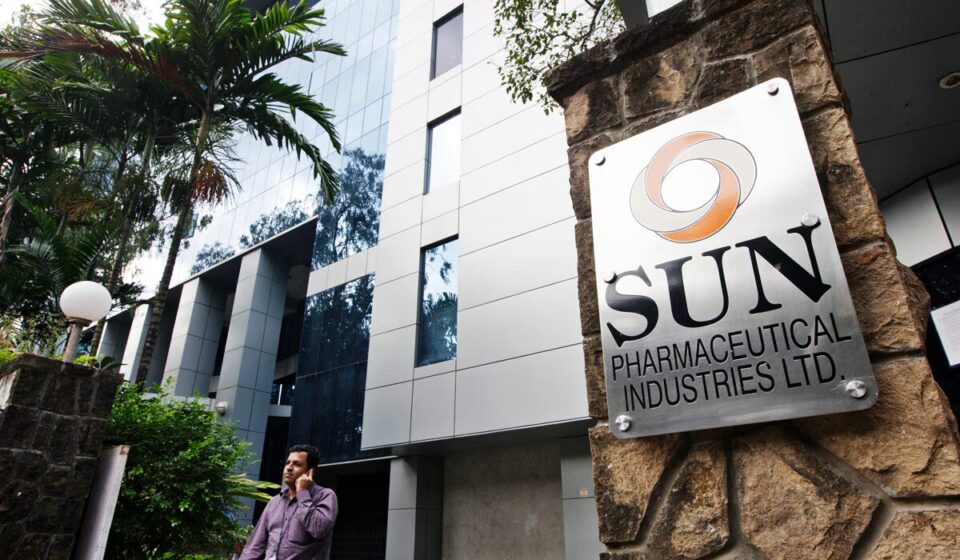Sun Pharmaceutical Industries, India’s largest drugmaker by market capitalization, saw its stock rally following a favorable ruling from the U.S. Court of Appeals for the Federal Circuit on April 9, 2025. The court vacated a preliminary injunction that had delayed the U.S. launch of Leqselvi (deuruxolitinib), a drug for treating severe alopecia areata, an autoimmune disorder causing patchy hair loss. This decision removes a significant regulatory hurdle, boosting Sun Pharma’s growth prospects and reinforcing its position in the global pharmaceutical market.
Details of the Court Ruling
The U.S. District Court for the District of New Jersey had previously granted a preliminary injunction in November 2024, halting Leqselvi’s launch due to a patent infringement lawsuit filed by Incyte Corporation. Sun Pharma appealed, and on April 9, 2025, the Federal Circuit ruled in its favor, lifting the injunction effective immediately. While the legal dispute with Incyte continues, Sun Pharma is no longer barred from launching Leqselvi, allowing the company to plan its market entry. Sun Pharma stated it will disclose launch plans “in due course,” signaling a cautious but optimistic approach.
Stock Market Impact
Following the ruling, Sun Pharma’s shares jumped 5% to a high of ₹1,735.80 on the BSE on April 11, 2025, contributing to gains in the Nifty Pharma index. As of 10:07 AM IST, the stock was trading at ₹1,699.25, up 2.85% from its previous close of ₹1,688.35. The company’s market capitalization stood at approximately ₹406,989.90 crore, reinforcing its rank as India’s top pharmaceutical firm. Over the past three years, Sun Pharma’s stock has risen 83.62%, though it dipped 4.79% in the last three months due to tariff concerns and market volatility.
Analyst Outlook
Analysts are bullish on Sun Pharma’s prospects post-ruling. Emkay Global and Investec maintained ‘Buy’ ratings, with target prices of ₹2,100 and ₹1,980, respectively, citing Leqselvi’s potential to add $50–100 million in sales by FY27, equivalent to 3–5% of Sun Pharma’s global specialty sales. However, they cautioned that ongoing litigation poses risks, as a future Incyte win could lead to damages or royalties. JPMorgan noted Leqselvi’s net present value at $546 million, suggesting minimal impact if delayed beyond the patent’s expiry in December 2026. The consensus among 31 analysts includes 13 strong buys and 12 buys, with only two sell ratings, reflecting confidence in Sun Pharma’s specialty portfolio.
Regulatory and Market Implications
The ruling eases regulatory pressures on Sun Pharma, which has faced scrutiny in the U.S., including FDA inspections at its Halol facility. Leqselvi, approved by the FDA in July 2024, strengthens Sun Pharma’s specialty drug lineup, which includes Ilumya, Winlevi, and Cequa, projected to grow at a 20% CAGR from FY24–27. The decision also aligns with India’s broader pharmaceutical export strategy, as the U.S. remains a key market, accounting for 31.3% of Sun Pharma’s sales. The recent 90-day U.S. tariff pause, announced on April 2, 2025, further supports Indian pharma exports by delaying a 26% tariff on non-exempt goods, giving Sun Pharma breathing room to capitalize on Leqselvi’s launch.
Link to India’s FTA Strategy
The U.S. court win dovetails with India’s efforts to bolster pharmaceutical exports through free trade agreements (FTAs). As India accelerates FTA talks with the EU, UK, and others during the tariff pause, Sun Pharma stands to benefit from streamlined regulatory approvals and lower tariffs in markets like the EU, where it seeks easier access for drugs like Leqselvi. The government’s push for robust rules of origin in FTAs ensures Indian pharma firms like Sun Pharma can compete without third-country goods flooding markets, enhancing their global edge. A successful EU FTA could add $50 billion to India’s trade, with pharmaceuticals as a key driver, further amplifying Sun Pharma’s growth potential.
Challenges Ahead
Despite the positive ruling, risks remain. The ongoing Incyte litigation could result in financial penalties or a royalty-based settlement if Sun Pharma launches Leqselvi before the patent expires in December 2026. Analysts estimate a slow sales ramp-up, with Leqselvi contributing modestly in the near term. Additionally, global trade uncertainties, including potential U.S. tariff reinstatement, could pressure margins, though Sun Pharma’s low reliance on U.S. generics (compared to peers) offers some insulation. The company’s recent $355 million acquisition of Checkpoint Therapeutics and a recall of Morphine Sulfate tablets highlight its active portfolio management but also underscore regulatory complexities.
Economic Context
Sun Pharma’s gains come amid a buoyant Indian market, with the Sensex and Nifty rallying on April 11, 2025, partly due to the U.S. tariff pause. The Reserve Bank of India’s accommodative stance, projecting a 5.75% policy rate by December 2025, supports corporate growth, potentially easing funding for Sun Pharma’s R&D and launches. With a TTM P/E ratio of 39.53 (above the sector’s 27.45) and a net profit of ₹9,576.38 crore in 2024, Sun Pharma remains a cornerstone of India’s $50 billion pharma export industry.
Outlook
The U.S. court ruling marks a pivotal moment for Sun Pharma, unlocking Leqselvi’s potential and reinforcing its specialty drug ambitions. As India leverages the tariff pause to secure FTAs, Sun Pharma is well-positioned to expand its $25 billion export market share, particularly in the U.S. and EU. While litigation risks linger, the company’s strong fundamentals, analyst backing, and strategic alignment with India’s trade goals signal a robust outlook, making it a stock to watch for investors and a key player in India’s global pharma narrative.


